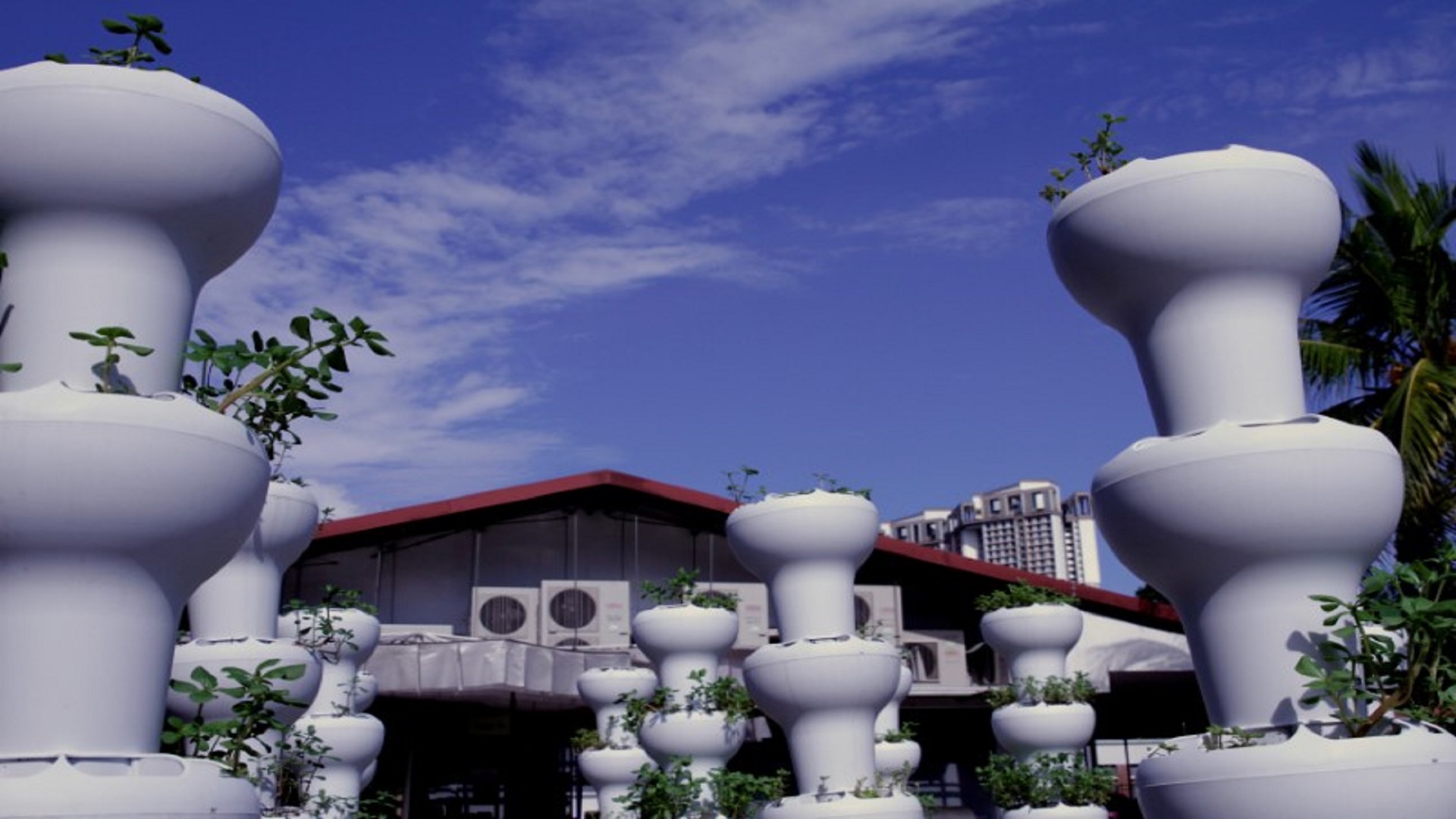Image: Food towers with multiple planting points are seen at an urban farm in Singapore June 20, 2017. REUTERS/Thomas White

SINGAPORE (Reuters) – Resource-scarce Singapore is turning vacant pockets of land into space for urban farming as the island city strives to ease its reliance on imported food.
The wealthy Southeast Asian city-state imports more than 90 percent of its food, much of it from neighboring countries, which can leave it exposed to potential supply chain disruptions.
Edible Garden City, a company with a grow-your-own-food message, has designed and built more than 50 food gardens in the tropical city for clients ranging from restaurants and hotels to schools and residences.
One of its projects is Citizen Farm, an 8,000 square meter plot that used to be a prison, converted into an urban farm “where the local community can learn and grow together”, according to the project website.
Citizen Farm produces up to 100 kg of vegetables, 20 kg of herbs and 10-15 kg of mushrooms – enough to feed up to 500 people – a day.
It’s tiny compared with demand for food in the country of 5.5 million people, but it’s a start, said Darren Ho, head of the Citizen Farm initiative.
“No system will replace imports, we are here to make us more food resilient,” said Ho, adding that it was “up to the community” to decide how self-sufficient it wants to be.
Government agencies are considering the company’s urban farming concept for other parts of the city, including spaces around high-rise public housing.
(Reporting by Fathin Ungku)
Copyright 2017 Thomson Reuters. Click for Restrictions.


